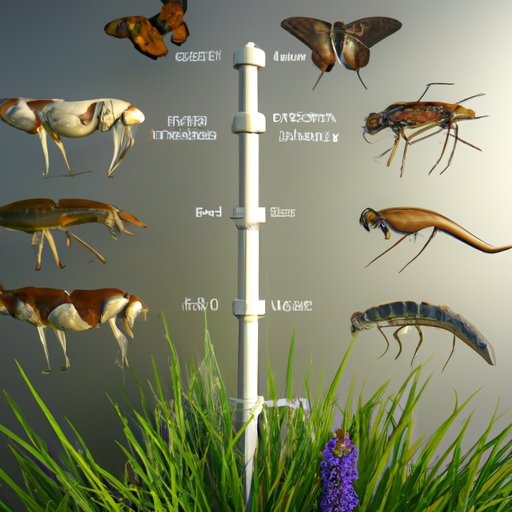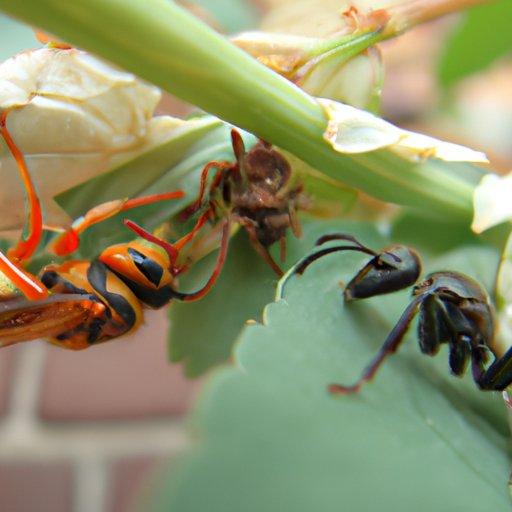Introduction
Mutualism is a type of symbiotic relationship between two species in which both parties benefit from the interaction. This type of relationship is essential to the balance of nature, and is an important part of ecology. In this article, we will explore what mutualism is in science, and its role in the complex world of ecology.

A Comprehensive Guide to Mutualism in Science
Mutualism is based on the principle of interdependence between species. The relationship between two species that rely on each other for survival is known as a symbiotic relationship. The term “mutualism” was first coined by French naturalist Pierre-Joseph van Beneden in 1876 to describe the close relationship between two species.
Mutualism occurs when two species interact in such a way that both benefit from the relationship. For example, some plant species depend on certain insects to pollinate them, while the insects benefit from the food source provided by the plants. Other examples of mutualism include bacteria living in the digestive tracts of animals, providing them with essential nutrients while receiving protection from the animal’s immune system.
Understanding the complexities of ecology requires an understanding of mutualism. Mutualism helps to maintain biodiversity, which is essential for healthy ecosystems. It also plays an important role in shaping the course of evolution, as species evolve over time to better suit their environment.
Mutualism: An Exploration of a Symbiotic Relationship
Mutualism is a key element of ecology, and it can be beneficial to both species involved. For example, the relationship between ants and aphids is mutually beneficial; the ants protect the aphids from predators and parasites, while the aphids provide the ants with a sweet substance called honeydew as food.
The benefits of mutualism are not limited to the species involved; they can also extend to the entire ecosystem. By maintaining a balance between species, mutualism can help to stabilize the environment and ensure the long-term health of the ecosystem.
Mutualism can also play an important role in evolution. As species evolve over time, they may become more dependent on each other for survival. This type of evolutionary adaptation can lead to the emergence of new species, as well as the extinction of others.
Conclusion
Mutualism is an important part of ecology, and has a significant impact on the stability of ecosystems. By exploring the various forms of mutualism, we can gain a better understanding of the complexities of ecology and evolution. Through mutualism, we can see how species are intertwined in a web of interdependence, and how this interdependence is essential for the health of the environment.
By examining the role of mutualism in nature, we can gain insight into the importance of biodiversity and the need to protect our fragile ecosystems. We can also gain a greater appreciation for the intricate relationships between species, and the ways in which they are intertwined in a delicate balance.
Summary of Key Points
Mutualism is a type of symbiotic relationship between two species in which both parties benefit from the interaction. It is essential to the balance of nature and is an important part of ecology. Mutualism helps to maintain biodiversity, which is essential for healthy ecosystems. It also plays an important role in evolution, as species evolve to better suit their environment.
Final Thoughts on Mutualism
Mutualism is a complex and fascinating phenomenon that has a profound effect on our environment. By exploring mutualism, we can gain a greater appreciation for the intricate web of life and how it affects the world around us. As we continue to study mutualism, we can gain a deeper understanding of the intricate relationships between species and the importance of preserving biodiversity.
(Note: Is this article not meeting your expectations? Do you have knowledge or insights to share? Unlock new opportunities and expand your reach by joining our authors team. Click Registration to join us and share your expertise with our readers.)
